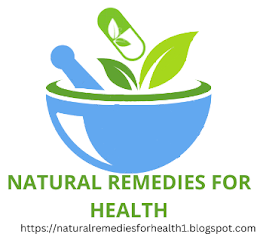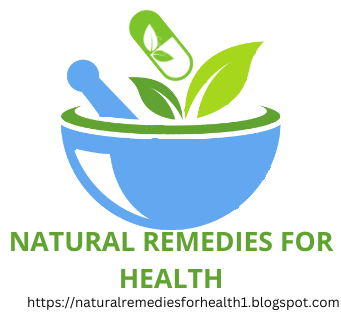Hormonal imbalances can disrupt the delicate equilibrium in our bodies, leading to a wide range of symptoms and health issues. Instead of relying solely on conventional treatments, many people are turning to holistic remedies to restore hormonal balance naturally. In this blog, we will explore various holistic approaches that can help address hormonal imbalances and promote overall well-being.
Table of Contents
- Understanding Hormonal Imbalance
- The Importance of Hormonal Balance
- Diet and Nutrition for Hormonal Balance
- Herbal Remedies and Supplements
- Essential Oils for Hormonal Balance
- Stress Reduction Techniques
- Regular Exercise and Physical Activity
- Quality Sleep and Hormonal Health
- Environmental Factors and Hormonal Balance
- Mind-Body Practices for Hormonal Harmony
- Seeking Professional Guidance
- Conclusion
- FAQs
1. Understanding Hormonal Imbalance
Hormonal imbalance occurs when there is an excess or deficiency of certain hormones in the body. This can lead to a wide range of symptoms, including mood swings, irregular periods, weight gain, fatigue, and more. Understanding the root causes of hormonal imbalance is essential for finding effective holistic remedies.
2. The Importance of Hormonal Balance
Hormones play a crucial role in regulating various bodily functions, including metabolism, reproduction, sleep, mood, and more. Achieving and maintaining hormonal balance is essential for overall well-being and optimal health. Imbalances can disrupt these functions and lead to various health issues.
3. Diet and Nutrition for Hormonal Balance
Adopting a balanced and nourishing diet can positively impact hormonal balance. Focus on consuming whole, unprocessed foods, and incorporate hormone-balancing foods such as leafy greens, fatty fish, nuts, seeds, and fermented foods. Avoid or minimize processed foods, sugar, and refined carbohydrates that can contribute to hormonal imbalances.
4. Herbal Remedies and Supplements
Natural herbs and supplements can help support hormonal balance. Examples include maca root, chasteberry, evening primrose oil, and ashwagandha. However, it's important to consult with a healthcare professional or qualified herbalist before using any herbal remedies or supplements to ensure their safety and effectiveness.
5. Essential Oils for Hormonal Balance
Essential oils have been used for centuries to promote hormonal balance and well-being. Clary sage, lavender, geranium, and frankincense are some essential oils known for their hormone-regulating properties. Dilute essential oils properly and use them in aromatherapy, massages, or baths to support hormonal health.
6. Stress Reduction Techniques
Chronic stress can disrupt hormonal balance. Incorporate stress reduction techniques into your daily routine, such as meditation, deep breathing exercises, yoga, or spending time in nature. Prioritizing self-care and finding healthy outlets to manage stress can have a positive impact on hormonal health.
7. Regular Exercise and Physical Activity
Maintaining an active lifestyle and engaging in regular exercise can support hormonal balance. Find activities you enjoy, such as walking, cycling, dancing, or strength training. Exercise helps regulate hormones, reduces stress, and promotes overall well-being.
8. Quality Sleep and Hormonal Health
Getting sufficient and quality sleep is crucial for hormonal balance. Create a sleep-friendly environment, establish a consistent bedtime routine, and prioritize sleep hygiene. Aim for 7-9 hours of uninterrupted sleep each night to support hormonal health and overall vitality.
9. Environmental Factors and Hormonal Balance
Environmental toxins can disrupt hormonal balance. Reduce exposure to harmful chemicals found in household cleaners, cosmetics, plastics, and pesticides. Opt for natural and eco-friendly alternatives whenever possible to create a healthier environment for hormonal well-being.
10. Mind-Body Practices for Hormonal Harmony
Mind-body practices such as acupuncture, acupressure, and traditional Chinese medicine can help restore hormonal balance. These practices work on the principles of energy flow and can support overall well-being and hormonal harmony.
11. Seeking Professional Guidance
If you're experiencing persistent or severe hormonal imbalances, it's important to seek professional guidance. A healthcare practitioner specializing in hormonal health can assess your condition, conduct necessary tests, and provide personalized recommendations for holistic treatment.
12. Conclusion
Addressing hormonal imbalances holistically can empower you to restore balance naturally and improve your overall well-being. By incorporating healthy lifestyle practices, nourishing your body with nutritious foods, managing stress, and seeking professional guidance when needed, you can support hormonal harmony and optimize your health.
13. FAQs
Q1: Can holistic remedies cure hormonal imbalances?
Holistic remedies can help manage and improve hormonal imbalances, but the effectiveness may vary from person to person. It's important to work with healthcare professionals and adopt a comprehensive approach that considers your unique circumstances.
Q2: Are there any side effects of using herbal remedies and essential oils for hormonal balance?
While herbal remedies and essential oils are generally considered safe, they may have interactions or side effects, especially if used inappropriately or in high doses. Consult with a healthcare professional or an experienced practitioner before using them.
Q3: How long does it take to restore hormonal balance using holistic remedies?
The time required to restore hormonal balance can vary depending on the severity of the imbalance, individual factors, and the chosen remedies. Consistency and patience are key, as it may take time for your body to respond and rebalance naturally.
Q4: Can hormonal imbalances be managed without medication?
In many cases, hormonal imbalances can be effectively managed without medication through holistic approaches. However, it's essential to work with healthcare professionals to determine the most appropriate treatment plan for your specific situation.
Q5: Are there any lifestyle factors that can contribute to hormonal imbalances?
Yes, lifestyle factors such as poor diet, chronic stress, lack of physical activity, inadequate sleep, and exposure to environmental toxins can contribute to hormonal imbalances. Adopting healthy lifestyle habits can play a significant role in restoring hormonal balance.















